Israel-Hamas War Day 196: Israel strikes Iranian air base
ABC report says targeted was connected to nuclear site • IDF said to have killed PIJ commander in West Bank • US, EU issue new sanctions on settlers
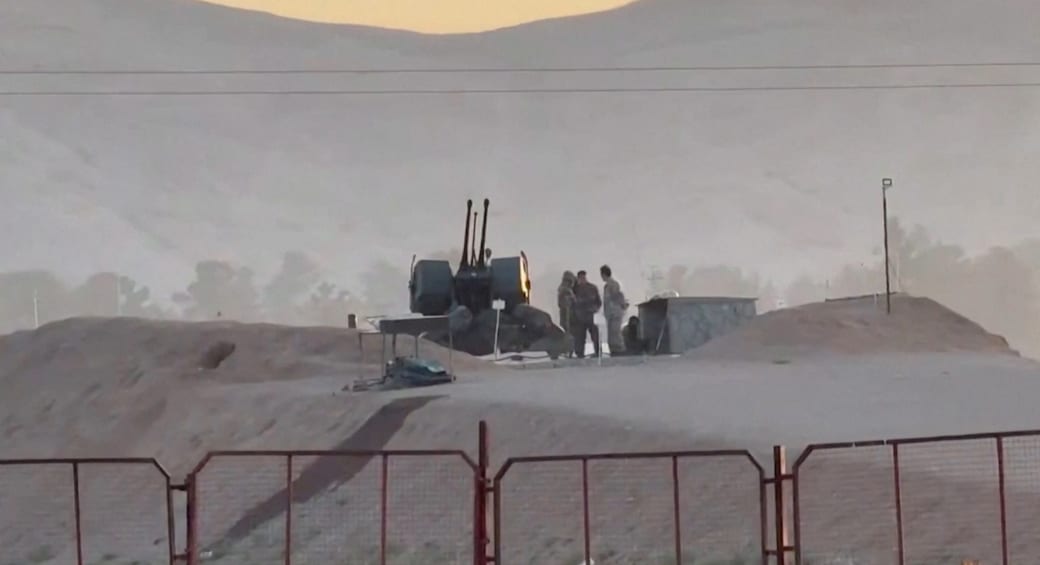

Israel targeted air defense system for Iran nuclear site - ABC News
The Israelis were targeting an air defense radar site near Isfahan that’s part of the protection of the Natanz nuclear facility," ABC said, in the name of the official.
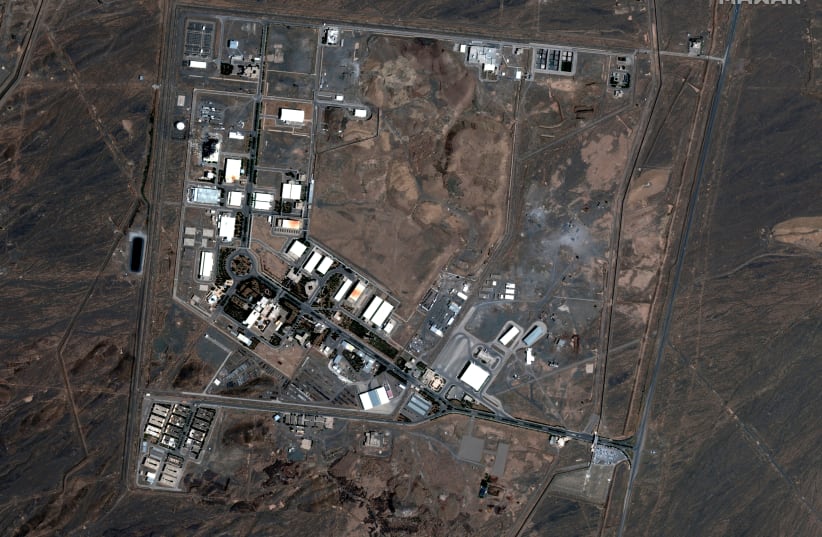
Israel targeted the defense system of the Natanz nuclear facility in Iran during its strikes Friday morning, ABC quoted a senior American official as saying.
The Israelis were targeting an air defense radar site near Isfahan that’s part of the protection of the Natanz nuclear facility," ABC said, in the name of the official.
"The first assessment is that the strike took out the site, but assessment hasn’t been completed, the official said."
The official noted, however, that the strike was meant to send a signal to Iran about Israeli capabilities, but not to escalate the situation.
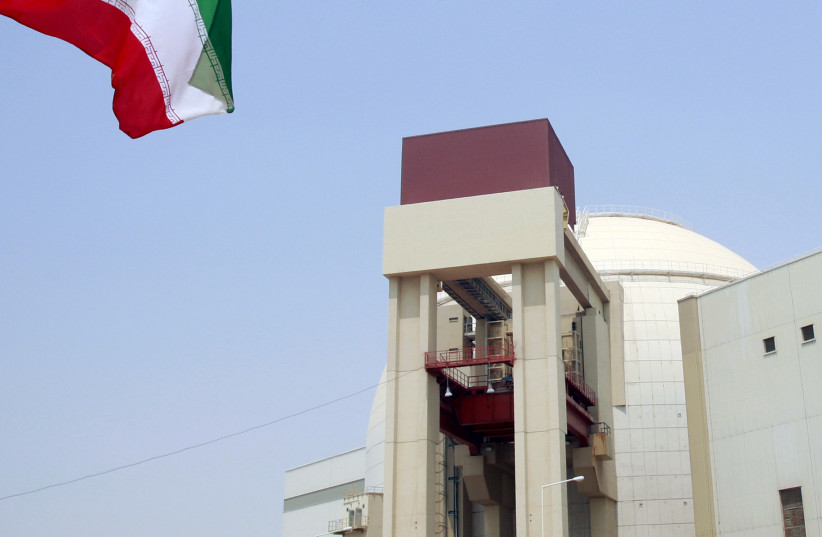 A general view of the Bushehr main nuclear reactor, Iran (credit: REUTERS/RAHEB HOMAVANDI)
A general view of the Bushehr main nuclear reactor, Iran (credit: REUTERS/RAHEB HOMAVANDI)
 A general view of the Bushehr main nuclear reactor, Iran (credit: REUTERS/RAHEB HOMAVANDI)
A general view of the Bushehr main nuclear reactor, Iran (credit: REUTERS/RAHEB HOMAVANDI)Iran has downplayed the attack's significance
The attack, which Israel has not claimed credit for, was launched in response to the aerial barrage of ballistic missiles and attack drones that Iran sent to Israel last Saturday night following an airstrike in Damascus, widely attributed to Israel, that killed a senior officer in Iran's Revolutionary Guards Corps (IRGC).
The officer was connected to Hezbollah, the Iranian proxy that has been attacking Israel almost daily since Hamas's attack on October 7.
In the hours since the strikes in Iran Friday morning, Iran has downplayed their effect and significance, declining to directly point the finger at Israel and announcing that no damage was done to any nuclear sites. The International Atomic Energy Association (IAEA) also reported that no damage was done to nuclear sites, and there were no reported casualties.
Go to the full article >>Attack on Iran next to nuclear site sends message: We could have done worse here - analysis
The message was unmistakable, 'we chose not to hit your nuclear sites this time, but we could have done worse right here,' sources told the Post.

Sources have confirmed to the Jerusalem Post that the attack on Iran at Isfahan, attributed by sources in the New York Times to Israel, hit Iranian air force assets at Isfahan, almost right next door to the Islamic Republic's nuclear site in the same area.
The message was unmistakable, 'we chose not to hit your nuclear sites this time, but we could have done worse right here,' sources told the Post.
Israel sends a clear message to Iran
In other words, the attack at Isfahan was designed not only to hurt Iran but also to make it eminently clear how vulnerable to attack its nuclear sites are.
Long-range missiles from aircraft were used to avoid Tehran's radar detection capabilities.
This could be done again at any time.
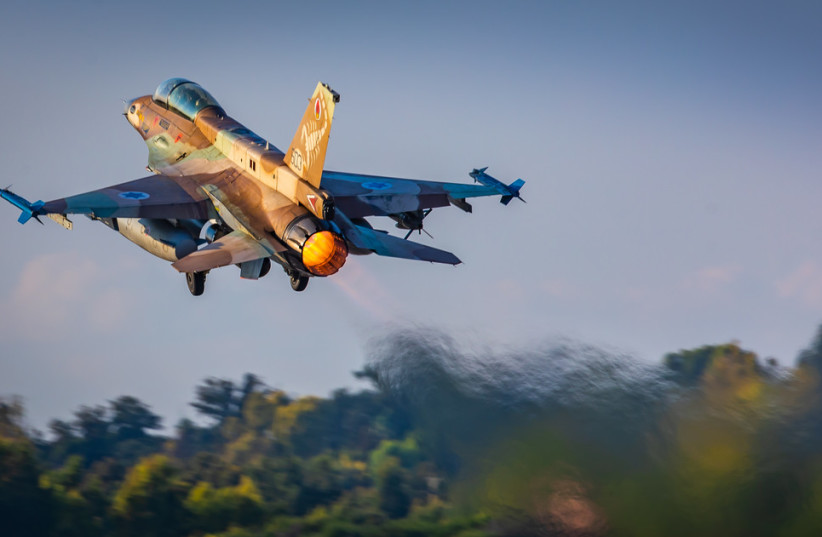
At the same time, by not attacking the actual nuclear site at Isfahan or other nuclear sites at Natanz and Fordow, the attacker signaled to Iran that it was not seeking a spiraling and escalating regional war.
Go to the full article >>What does Israel's capability to strike Iran directly without special ops mean for the region?
The IDF was looking for a way to respond to the attack without being dragged into a direct and ongoing confrontation.
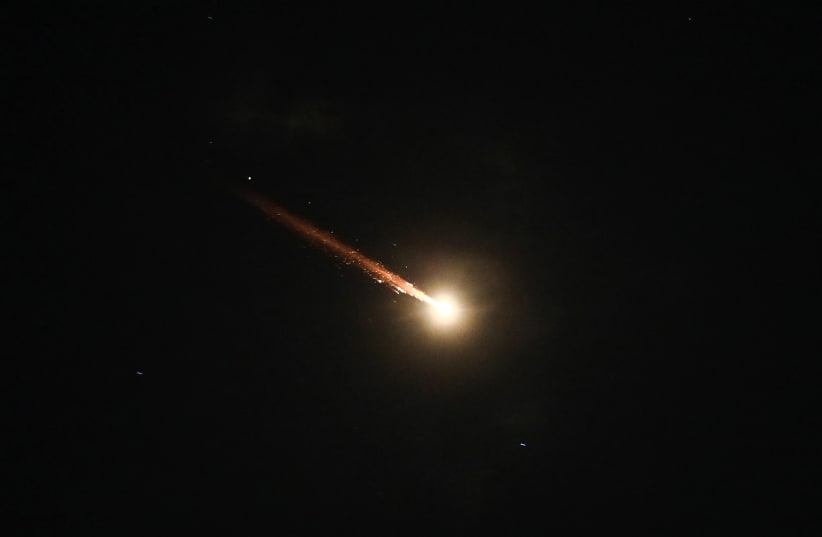
Israel's capability to strike Iran without specific military facility operations is a key question. Can the Israeli government effectively navigate the shifting regional political-security landscape that aligns with the US and other nations to craft a response limited to harsh sanctions against Iran?
Foreign reports surfaced early morning across Iran, the US, and other media, detailing attacks in Iran, Iraq, and Syria. Focus quickly turned to an Iranian military airfield in Isfahan, from which unmanned Iranian aircraft reportedly departed for an attack on Israel.
Israel found itself compelled to mount a military response to Iranian aggression between Saturday and Sunday. With diplomatic pressures from the US and others, it's become clear that Israel, under such pressure, would seek to "send a message" without escalating to a direct and prolonged confrontation with Iran.
Analyzing foreign reports on the relatively secretive operation—where heavy drones struck an Iranian military airfield in response to an attack on an Israeli military airfield in the Negev—it appears to be a simple tit-for-tat equation. However, Israel's focused, limited strikes against Iranian targets aim to allow room for Iranian denial and avoid triggering an escalated response.
US restraint and continued focus on the Gaza Strip further constrain Israel's actions. Opening a new theater of war would counter Israel's interests at this time.
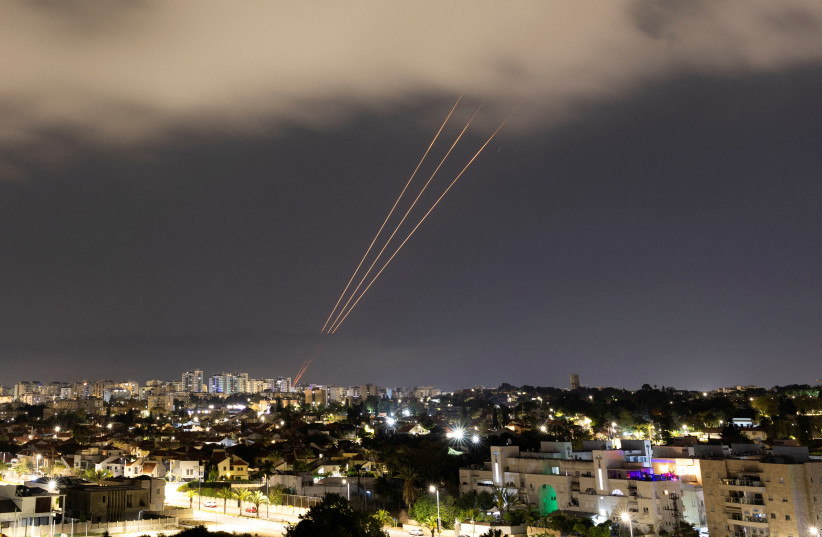
Israeli concerns also stem from the intelligence community's failure to properly assess changing Iranian aggressiveness amid a deepening alliance with Russia. The Iranians' decision to escalate the inter-state conflict into open confrontation adds to Israeli worries.
Go to the full article >>The Middle East is at a crossroads in potential Iran-Israel conflict - analysis
The Middle East is now approaching a new crossroads in history. Iran launched a regional war on Israel in the wake of the October 7 attack by Hamas.
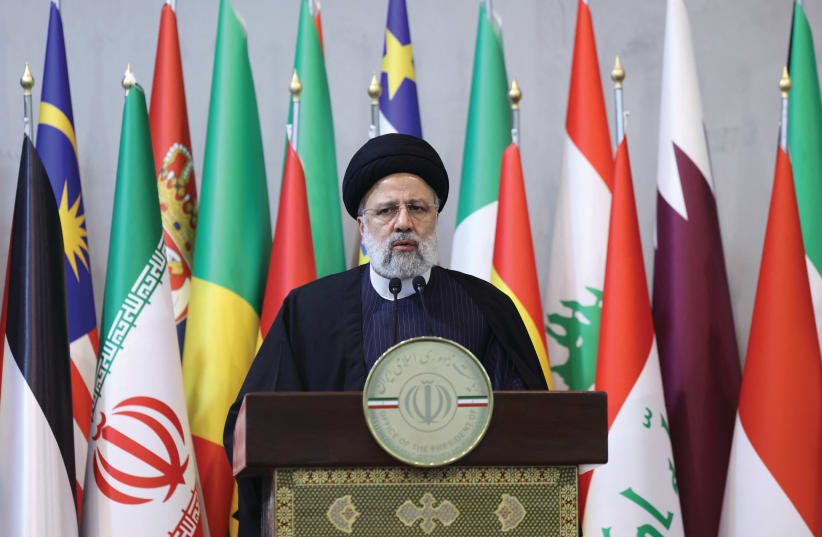
Across the Middle East, countries and groups are watching a potential Israel-Iran conflict unfold. All of those with stakes in this conflict have been watching it emerge for decades.
Iran’s regime has vowed to destroy Israel over the years, and it has empowered groups such as Hezbollah, Hamas, Palestinian Islamic Jihad, and the Houthis in Yemen, who all want to dismantle Israel. For instance, the Houthis in Yemen have “cursed the Jews” and “death to Israel” as part of their official slogan.
The Middle East is now approaching a new crossroads in history. Iran launched a regional war on Israel in the wake of the October 7 attack by Hamas.
Iran prodded Hezbollah to begin attacks on October 8, and then it encouraged the Houthis to target Eilat and target shipping.
This is a multi-front war, and Iran has been systematically knitting together its proxy groups in the region for what it says is a war using different “arenas” to attack Israel. Iran and its proxies are open about this.
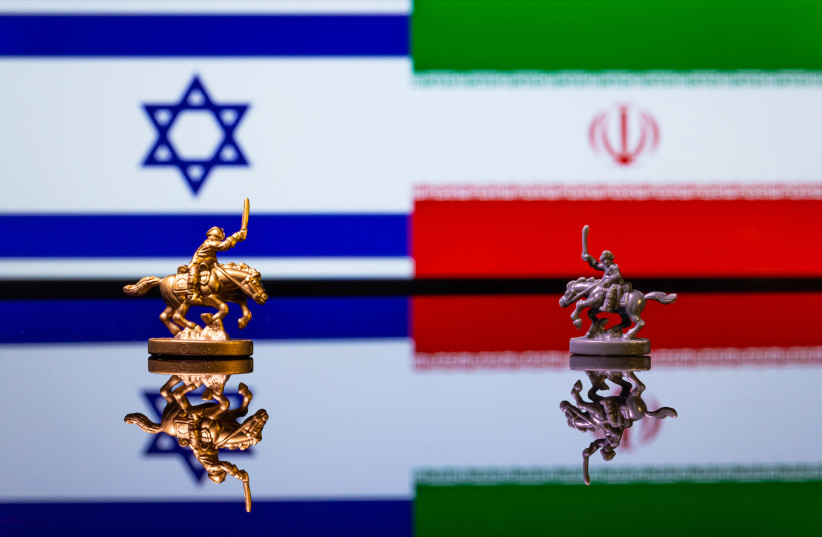
They want to “ring” Israel with fire, and according to Hezbollah’s leader Hassan Nasrallah, Israel is weak like a “spider web.”
Go to the full article >>US restricts gov't employees, families from travelling outside certain areas in Israel

The US Embassy in Jerusalem issued a restriction order on Friday on government employees from traveling outside the greater Jerusalem, Tel Aviv, and Beersheba areas in light of Israel's alleged retaliatory attack against Iran the night before "until further notice."
Other areas include Herzliya, Even Yehuda, Netanya, according to the embassy's website.
The embassy may also further restrict employees and their family members to travel to other areas such as the West Bank and the Old City of Jerusalem.
Go to the full article >>Israeli Minister hints strike in Iran as 'weak, disappointing'
After the Iranian attack on Israel on Sunday, Ben Gvir tweeted, "Impressive defense until now – now there must be a crushing attack."

Far-right Israeli National Security Minister (Otzma Yehudit) Itamar Ben-Gvir hinted towards the alleged Israeli attack in Iran on Friday, on X, saying it is dardaleh, slang for weak, disappointing, or poor.
דרדל׳ה!
— איתמר בן גביר (@itamarbengvir) April 19, 2024
After the Iranian attack on Israel on Sunday, Ben Gvir tweeted, "Impressive defense until now – now there must be a crushing attack."
Tally Gotliv's comments
MK Tally Gotliv (Likud) also tweeted earlier Friday, "Good morning, dear people of Israel. A morning in which our head is held high with pride. Israel is a strong and powerful country. May we regain the power of deterrence."
Go to the full article >>No plan for immediate retaliation against Israel, senior Iranian official says
Iran has no plan for immediate retaliation against Israel, a senior Iranian official told Reuters on Friday, hours after sources said Israel launched an attack on Iranian soil.
"The foreign source of the incident has not been confirmed. We have not received any external attack, and the discussion leans more towards infiltration than attack," the Iranian official said on condition of anonymity.
Go to the full article >>Australia asks its citizens to evacuate Israel
"We urge Australians in Israel or the Occupied Palestinian Territories to depart if it's safe to do so," the country's Department of Foreign Affairs and Trade issued on Friday.
"There’s an increased threat of military and terrorist attacks against Israel and Israeli interests," the department's Smart Traveller account said on X. "The security situation could deteriorate quickly. We urge Australians in Israel or the Occupied Palestinian Territories to depart if it's safe to do so."
There’s an increased threat of military and terrorist attacks against Israel and Israeli interests. Ongoing military action in the Occupied Palestinian Territories could lead to increased tensions in other locations. [1/3] pic.twitter.com/eVe6C52QpO
— Smartraveller (@Smartraveller) April 18, 2024
"Military attacks may result in airspace closures, flight cancellations & diversions & other travel disruptions. Tel Aviv's Ben Gurion International Airport may pause operations due to heightened security concerns at any time, & at short notice," the post added.
The account also noted of explosions across additional locations in the Middle East.
Go to the full article >>Anti-Israel activists that praised Iran attack slam Israeli strike
Those who claimed that Iran's drone and missile attacks on Israel were strong and just responses are now saying the Israeli strike was weak and an unnecessary escalation.
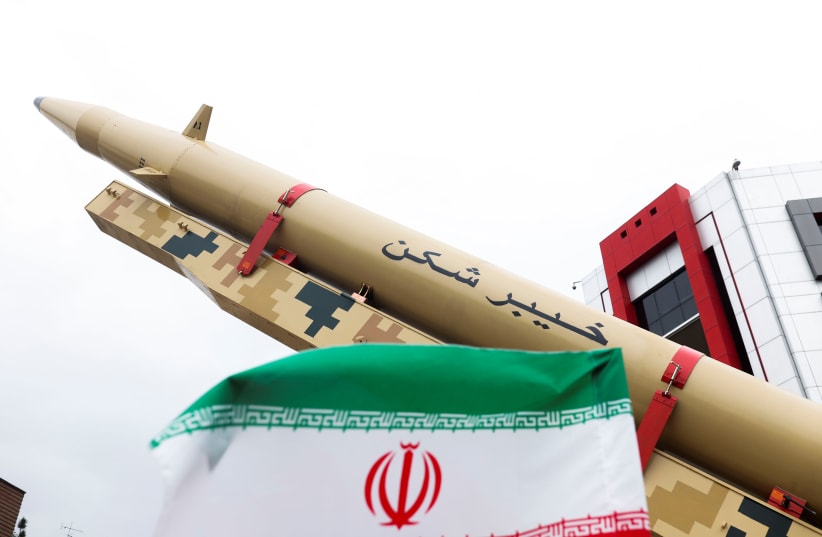
Anti-Israel activists and commentators who praised the Iranian drone and missile attack on Israel Saturday night criticized Israel over reports of an alleged strike on Iran early Friday morning.
American Communist Jackson Hinkle decried that “Israel bombed Iran on Supreme Leader [Ali] Khamenei's birthday.”
Hinkle called on Iran to start enriching uranium and not to hold back.
🇮🇷 Sir, start enriching the uranium @khamenei_ir. pic.twitter.com/6QQfqDER3c
— Jackson Hinkle 🇺🇸 (@jacksonhinklle) April 19, 2024
Commentator Hadi Nasrallah complained, “We are heading to WWIII because the West is unable to say no to Netanyahu. What is he holding against them?”
We are heading to WWIII because the west is unable to say no to Netanyahu. What is he holding against them?
— Hadi Nasrallah (@HadiNasrallah) April 19, 2024
Calls for a response
Go to the full article >>Drone strike at Isfahan has worked before, was it the right move now? - analysis
If no nuclear sites were hit, the response might be viewed as limited by Iran and the West.

If reports are correct that Israel has used drones to strike Iranian air force assets, whether Iranian drones, ballistic missiles, aircraft, or all of the above, at Isfahan, this would be straight out of a playbook that has worked before, as recently as January 2023.
It is also possible that long-range missiles were used, though initial reports indicate an attack from within Iran, which would be more consistent with drone strikes.
In January 2023, despite Iranian claims, a drone attack on Iran at Isfahan was a tremendous success, according to a mix of Western intelligence sources and foreign sources, the Jerusalem Post learned at the time.
There were four explosions at the site, which could even be witnessed on social media, against a facility developing advanced weapons, and the damage went far beyond the "minor roof damage" that the Islamic Republic claimed and which it had falsely claimed before also in other incidents in recent years.
Israel played both the current and January 2023 incidents mum, but most Western intelligence and Iranian sources credited the Mossad with similarly successful attacks against Iran's Natanz nuclear facility in July 2020, a different Natanz nuclear facility in April 2021, another nuclear facility at Karaj in June 2021 and with destroying around 120 or more Iranian drones in February 2022.
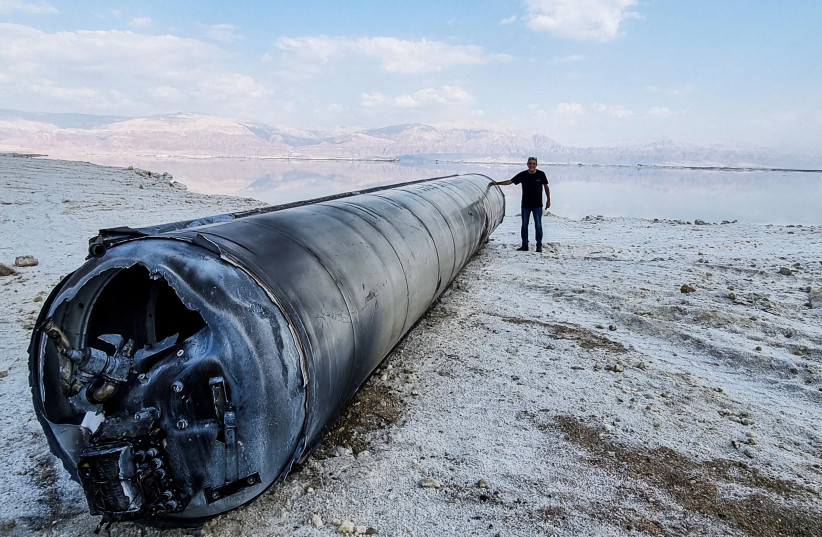
Former prime minister Naftali Bennett later publicly admitted to ordering the attack on Iran's drone facility in February 2022.
Go to the full article >>Israel-Hamas War: What you need to know
Hamas launched a massive attack on October 7, with thousands of terrorists infiltrating from the Gaza border and taking some 240 hostages into Gaza
Over 1,200 Israelis and foreign nationals were murdered, including over 350 in the Re'im music festival and hundreds of Israeli civilians across Gaza border communities
133 hostages remain in Gaza
37 hostages in total have been killed in captivity, IDF says